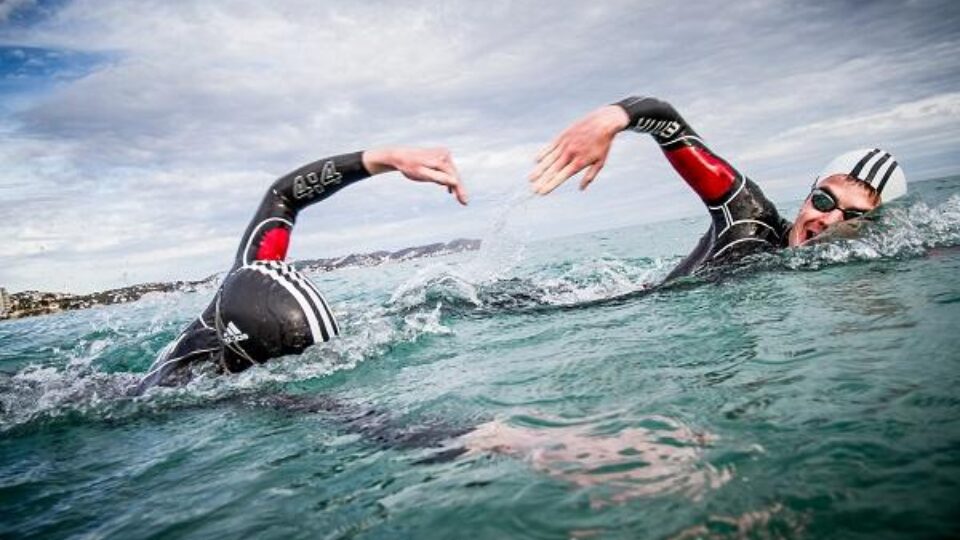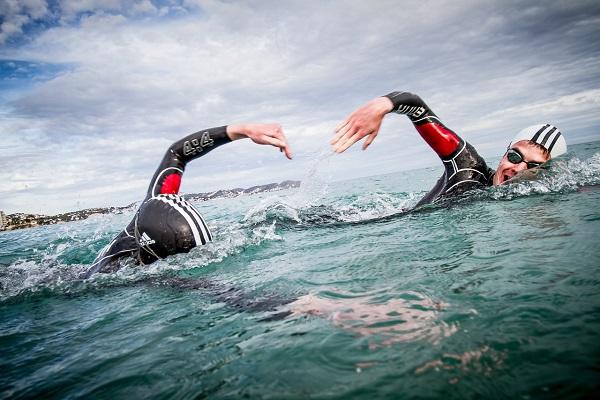
13 Mar2021

share



Of course, there are safety considerations for any sport. One that involves immersing yourself in freezing cold water without a wetsuit probably warrants a bit more focus on the safety… there are rules – these are taken from the Outdoor Swimming Society website, where there are lots of useful resources.
As the temperature drops, just keep swimming and your body will get used to the cold. This time of year is the perfect time to start cold water swimming. It will not be such a shock to go through the year then, as the sea temperature starts to fall.
Open water can be dangerous. Only ever swim where it is safe, and make sure you can enter and exit the water quickly and easily. Never swim on your own.
Wear a swimming hat, or two, to help preserve body heat (we often wear woolly hats or earmuffs). You can also wear neoprene gloves, booties, balaclava or a wetsuit – whatever you feel comfortable with (although you may be ribbed by the group if you wear a wetsuit!)
Do not dive or jump in unless you are used to the cold water. Cold water can cause gasping of breath and cold-water shock, which can be extremely dangerous.
As the temperature drops, decrease the amount of time you spend in the water. In winter, swimmers often only swim for one or two minutes at a time. The general rule is that you can spend 1 minute per degree of water temperature in the water – obviously, you need to listen to your body too.
Don’t have a hot shower. Hot water can cool your core and it can be dangerous. Instead, make sure you have plenty of warm clothes, wrap up well and have a hot drink.
Believe it or not there are some great benefits to performing cold water swimming! Here is a brief summary:
The effects of cold water on the immune system have been studied widely. Cold water helps to boost the white blood cell count because the body is forced to react to changing conditions. Over time, your body becomes better at activating its defences.
Cold water swimming activates endorphins. This chemical is what the brain produces to make us feel good during activities. Cold water swimming is also a form of exercise, and exercise has been proven to treat depression. Cold water swimming brings us close to the pain barrier. Endorphins are released when we’re in pain, to help us cope with it.
Cold water swimming flushes your veins, arteries, and capillaries. It forces blood to the surface and helps to warm our extremities. Repeated exposure adapts us to the cold.
Cold water was traditionally seen to repress sexual urges. The fact is that it increases libido! A dip in some cold water boosts oestrogen and testosterone production, adding an edge to fertility and libido.
The benefits of increased libido include more confidence, higher self-esteem, and enhanced mood.
The heart has to pump faster in cold water and the body must work harder to keep everything warm while swimming. Overall, far more calories are burned during cold water swimming than swimming in warmer conditions. The idea that drinking cold water increases the number of calories you burn may be a myth, but it is a fact that cold water decreases your body temperature so much that the body must act.
Cold water swimming places stress on the body physically and mentally. Many studies have identified the link between cold water and stress reduction. Cold water swimmers become calmer and more relaxed.
There is a great sense of community and camaraderie amongst cold water swimmers. There is nothing that brings people together like facing a challenge and sharing the experience as a group.
There are ongoing studies into the effects of cold-water swimming and the menopause. The difficulty is that it is difficult to prove that it is specifically the cold water that is having the positive effect – as the aspects of socialising and doing exercise will both improve general health and wellbeing. What’s not to like?